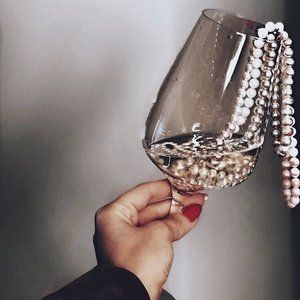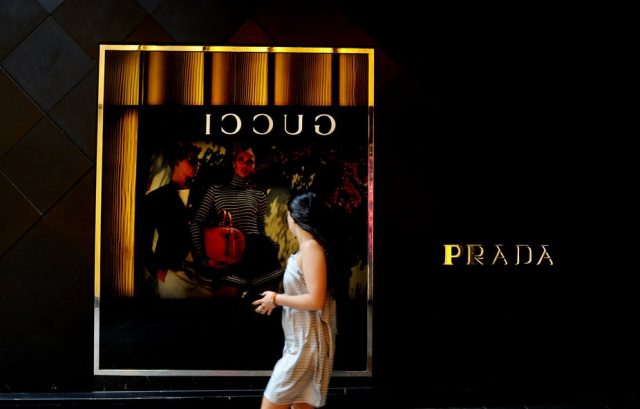Who doesn’t want to live in a condominium, drive a Porche, sport a Gucci purse, or spend a week or two in the Caribbean islands? But only a few can afford all this or more. The question is why do we all want to have products that define luxury? Studies show that the appeal of luxury is primarily psychological. Consumer’s concept of the self plays an important role in motivation. Consumer purchase of luxury brands frequently is driven by perceptions about self-identity, ideal self, social comparison, and other ‘self’ motivations. Most of the time luxury products are opulence incarnate and they definitely imply that ‘you are elite’. Evidence suggests that the decisions to purchase a luxury product are overwhelmingly emotional. Purchase behavior is a direct result of how the consumer perceives that a brand delivers the emotional end-benefits of buying and owning. Neuroscience reveals that the emotions associated with our judgments guide us in making decisions. Emotions and feelings are components of rationality in that they reveal what is important to us. For example, we can be emotionally drawn to good design, and then rationally decide whether the exceptional qualities of luxury design are worth the additional price versus the ‘good enough’.
The quality of luxury goods is undeniable: the unique design, the recognizable logo, and better comfort. But the price tag can be pretty off-putting. There are luxury goods and services in the market starting from $10,000 mother–baby diamond tennis bracelet sets to $700 jeans, $800 haircuts, and $400 bottles of wine. For most luxury-product buyers, characteristics that separate luxury from mainstream products are unique design, great quality, high cost, and limited distribution. A luxury brand marketing strategy is different because luxury brands are different. Consumers have different to buy luxury. Yangon-based Hsu Lin, 45, is a business woman who often visits New York city for work and shopping. She says, “I value quality in everything, even if I have to pay a hefty price for it. To me luxury defines great quality”. Thinzar, 38, a software professional who works for an IT company in Mandalay, says, “I am ready to pay a lot extra for exclusivity. Luxury brands make me stand different from the crowd. I always want to feel I am unique, I am special”.
“I value quality in everything, even if I have to pay a hefty price for it. To me luxury defines great quality”. Hsu Lin
Luxury products are, after all, status symbols. The popular bumper-sticker slogan, “He who dies with the most toys, wins,” summarizes the desire to accumulate these badges of achievement. Definition of luxury, though, has changed in recent times. Present day consumers believe that the luxury has become less about scarcity, and more superficial. In an survey, when asked specifically how the definition has changed, more than one-fourth (27 percent) said that today’s luxury is more accessible—it no longer implies that something is exclusive or hard to obtain. Sixteen percent said that it’s become more about show than enjoyment; 15 percent said that it’s more expensive. And another 15percent talked specifically about decreases in quality.
In the last decade, major luxury brands have entered Myanmar – from the luxury property sector, luxury cosmetics chains, high-end watches, to sports cars- all have made their presence felt. A spokesperson from a luxury car segment says that people lust after products they can’t have. Such a buyer enjoys evoking these feelings when they have part of a limited run. Sometimes they maintain the value of their investment if they know that no other product get produced after the initial manufacturing period. In fact, they buy things to inspire envy in others through the display of wealth or power. According to a survey by Nielsen, Myanmar’s FMCG sector has expanded by 15% since 2014. Myanmar’s consumer class is becoming more and more brand-conscious. Foreign brands and products have become a popular status symbol among end-consumers in Myanmar. As market demand and purchasing power grow, consumers will continue to expect more brand options and demand more quality products, especially brands and products from western countries. A decent handbag at a high-street fashion brand like Zara or Mango can cost $50 on average, so what makes it alright to make the price skyhigh just to be seen with a specific brand logo. Similarly, there are plenty of smart phone brands in Myanmar like Samsung, Oppo, and Huawei but people want to be seen with an iPhone or an iPad. Consumers wait overnight for new releases, even though MacBooks and iPhones aren’t technologically unique or superior. In fact, Samsung or Nokia make phones with better features and sell it at a much cheaper price. Nevertheless, Apple seems to break sales records year after year. “The company has mastered the art of retail marketing and exerted more economic influence than any company in history”, says Professor Scott Galloway of New York University.

Status-seeking is a significant source of motivation to procure appropriate products and services that let others know we’ve ‘arrived’. Passion also drives people to buy a luxury product. This is seen more in the luxury car market where car enthusiasts love automobiles as part of their hobby. They have a strong attachment to brands that offer unique experiences. They’re not looking for a vehicle to get from point A to point B. Every part of the car contributes to the way they enjoy their free time, which means this type of buyer pays close attention to every aspect of a luxury car. The luxury car market has a high barrier to entry for the average consumer, which makes it an exclusive club that not everyone can join. Some car owners end up being the only person with that particular model in their city or region, which can give them a level of local fame that’s personally desirable.
Sounds strange but often low self-esteem is a big factor in whether a person will buy luxury goods that he may not be able to afford. Such a study was published by the Journal of Experimental Social Psychology. For consumers trapped in institutionalized poverty or those living paycheck to paycheck, a luxury good can go a long way in increasing self-esteem or providing a sense of belonging. Uncertainty about other aspects of their lives also makes turn people to status symbols. According to a study when subjects in auctions were made to feel that they had little power, they spent more to purchase items to compensate for this deficit.
Optimizing a marketing strategy for luxury goods requires a deep understanding of the target audience and what drives them to look for these products. Leveraging these triggers increases the chances of attracting qualified leads interested in moving forward.










